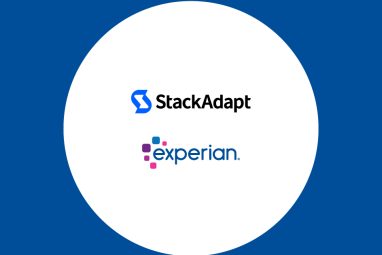83% of APAC CEOs Say GenAI is a Top Business Priority
87% of Singapore C-suite executives said that genAI is among the top three business priorities, with 48% already having a clear strategy.
Topics
What to Read Next
- Stravito Introduces Deep Research Agent in AI Assistant
- StackAdapt Partners with Experian to Boost First-Party Data Activation
- Later Introduces Later 360, a Unified Reporting Suite
- Audion Unveils Audion AI to Deliver Outcome-Driven Audio Advertising Campaigns
- Ramco Systems Launches Chia, a Conversational AI Agent

Generative AI (GenAI) is among the top three business priorities for 83% of APAC C-suite executives. That said, 54% said their organisation had a clear and defined genAI strategy, while a further 40% said they had started working on a genAI strategy for their business.
This is according to research by Salesforce where 1243 leaders from large businesses across the APAC region were surveyed.
The study also revealed that the key motivations driving genAI adoption were innovative customer and employee experiences (44%), customer expectations for faster, more personalised experiences (44%) and to boost productivity and efficiency (43%).
In addition, the chief executive officer (CEO) is seen as being the most responsible for ensuring genAI is successfully integrated (37%) and teams enabled, followed by the chief information officer (CIO) and chief technology officer (CTO) (25%) and department heads (19%).
When asked where genAI would have the biggest positive business impact, C-suite executives identified information technology (42%), operations (31%), customer service (30%) and research and insights (28%).
Despite being widely used, however, 93% of C-suite executives said they believed there were still barriers to the adoption of genAI in their business today.
These barriers include accessibility and inclusivity (37%), lack of skill-building or training opportunities (31%), use of incomplete customer or company data to train AI models (30%), genAI tools consistently producing inaccurate output (30%) and cost to implement genAI tools (30%).
In Singapore
In similar research conducted by Salesforce, it found that 87% of Singapore C-suite executives said that genAI is among the top three business priorities, with 48% already having a clear strategy. 47% said they had only started working on a strategy.
Interestingly, key motivations driving genAI in Singapore varies from that of APAC C-suite executives.
These motivations include wanting to be seen as being on the cutting edge of technology adoption (43%), to remain competitive (42%) and to innovate customer and employee experiences (42%).
Similarly, CEOs are seen as the most responsible for ensuring successful integrated and teams enabled genAI (42%). This is followed by the CIO and CTO (31%) and department heads (18%).
When asked where genAI would have the biggest positive business impact, C-suite executives identified information technology (40%), operations (33%), finance (29%) and customer service (28%).
However, 95% of C-suite executives said there were barriers in place. These barriers are accessibility and inclusivity (43%), lack of skill-building or training opportunities (33%), the use of incomplete customer/company data to train AI models (31%) and the lack of governance (31%).
With genAI becoming one of the top three business priorities, a study by Capgemini research institute titled “Harnessing the value of Generative AI 2nd edition” found that 80% of organisations are embracing genAI and are increasing their investments from 2023.
Meanwhile, 20% of organisations are maintaining their investment level, and not one organisation has decreased their investment from last year.
In addition, nearly 24% of organisations have integrated genAI into some or most of their operations, an acceleration from 6% last year.
This increase in genAI is witnessed across all sectors. For example, in retail, implementation increased to 40%, more than doubling from 17% in 2023.









































































































